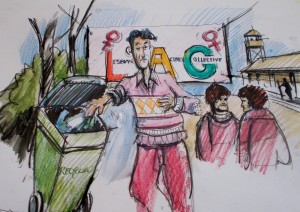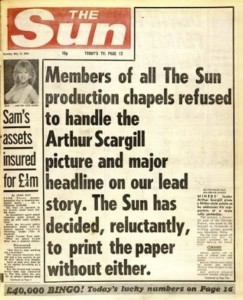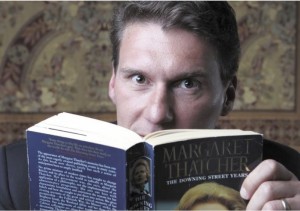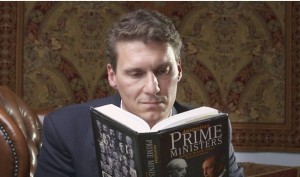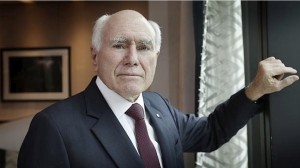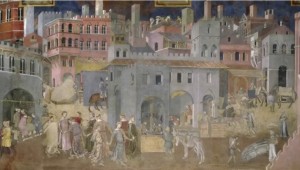
“Good Governance”. Lovely buildings, equitable sharing of taxes, good public infrastructure. Happy citizenry.
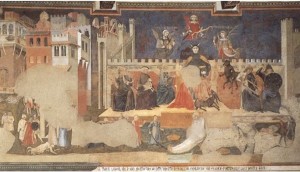
‘Bad Governance”. Quite a few corpses, Devil, and a proliferation of “private-public partnerships’ and freeway infrastructure.
There’s a lot of science fiction that describes bad behaviour. That’s what makes it so readable. Perhaps our earliest science fiction writer was not even a writer, but a painter, Ambrogio Lorenzetti, (1338), a great proto-renaissance artist. (we’ll use ‘proto’ quite a bit in this piece). These days no one’s ever heard of him, but I think he was a damn fine painter, and unlike most contemporary artists, possessed a sense of humour. In ‘The Allegory of Good and Bad Government’ he painted two scenes, one good and one bad. In ‘bad” he illustrated what happens when the citizenry are let loose, and how naked ambition, bloody mindedness and greed, can send a society potty. And then instructively in ‘Good governance” the opposite can lead to prosperity, dignity and a great society. Clearly they have no interest in proto-renaissance era allegories in the United States these days.
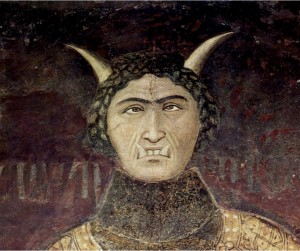
Uncanny resemblance to Nationals M.P George Christensen in ‘Allegory of Bad Governance’.
That’s why I like great science fiction writers, they take the experience of the day to day and make us think about ourselves by putting a universal understanding of what makes us tick in futuristic and ‘other worldly’ environments. It sort of reinforces a hyper-reality, with a bit of imagination and fantasy thrown in.
These days everyone seems to be into dystopia. I don’t know much about dystopia, but I gather it’s sort of the opposite to Utopia. Now ‘Utopia’ was the brainchild of Thomas More, who imagined way back in 1516 a proto-communal society in which property was shared, and everyone had access to communal food. Radical stuff back then. Interestingly, priests were allowed to marry, and the citizenry shared in the task of making food and learning certain useful things, like how to weave and build things, and keep a lid on how many hours each individual would be required to work. Some say More’s vision is an elaboration on the security and sanctity of Monasterial life. But I say he had a pretty good handle on the sort of vision favoured by the liberals and reformers of the mid nineteenth century for an eight hour day, dignity, enfranchisement and opportunity for those who made a contribution to society. Not the dehumanising dystopia of the work rich income poor (those who aren’t good enough to afford negative gearing) certainty allocated to those in contemporary society.
Radical stuff back then. Interestingly, priests were allowed to marry, and the citizenry shared in the task of making food and learning certain useful things, like how to weave and build things, and keep a lid on how many hours each individual would be required to work. Some say More’s vision is an elaboration on the security and sanctity of Monasterial life. But I say he had a pretty good handle on the sort of vision favoured by the liberals and reformers of the mid nineteenth century for an eight hour day, dignity, enfranchisement and opportunity for those who made a contribution to society. Not the dehumanising dystopia of the work rich income poor (those who aren’t good enough to afford negative gearing) certainty allocated to those in contemporary society.
Still More gets credit where it’s due for being a deep thinker, though each household did have two slaves, which well and truly anchors it to the sixteenth century. Unless you live in a contemporary “free trade” environment.
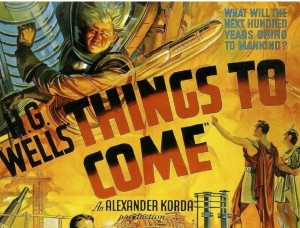
They just don’t do film posters like this anymore.
My favourite, H. G Wells dreamt of everything. Most of what we now take for granted. In “ ‘Worlds to Come” he envisaged a society in which the ‘inheritors’ became so removed from their past, (and the benefits offered by the ‘big society’ they’d created to give humankind equality of opportunity), they, through ill considered wars, and general stupidity, flung themselves back into the dark ages. Then agonisingly rebuilt society and then did it all over again. Well’s thesis being that we the humans are too stupid, short sighted or self interested to cope with the benefits of prolonged growth and success, and are programed to needlessly throw it all away. Clearly the vast bulk of our contemporary politicians are not much interested in science fiction writing either.

‘Good Governance”, Social and environmentally responsible utilisation of land intrinsic to good governance. Note coal seam gas plant in top left hand corner, (obscured by winged angel)
Of the more modern sci- fi writers there’s my favourites Bradbury, Heinlein, Clarke, Asimov and Philip K Dick, (don’t giggle). Some would say L. Ron Hubbard was a writer so great they made a religion out of it, but that would be silly because every sensible person knows that God doesn’t not exist, and if he was a spaceman or alien, he would be thrown into detention on Manus or Nauru. Bradbury in ‘Fahrenheit 451’, imagined an era where everything was read through the screen, and the printed word had been consigned to the dustbin. It was a pretty post-Goebell’s inspired society and I imagine that exemplar of free speech Kim Jong-un is a big fan of it in North Korea. I think Bradbury was trying to say that the badly behaved ruling elite in 451, had decided that information, words and thought, were subversive, and threatened the status quo. Better to keep the population, pliant, ignorant and stupid. Now WE know that this never works, but i’m sure Rupert feels justified in giving it a red hot go.
And finally the most eerie science fiction, dystopian novelist of them all. He presages a futuristic world, strangely anchored to the here and now in which old men could attain the most powerful position in the world by ruthlessly pursuing and maintaining a power system in which “underlings were quashed, abused, and betrayed on a daily basis. The origins of their code were strictly enforced by a society that threatened imprisonment isolation and disgrace upon anyone who thought, practiced and entertained homosexuality. This society also condoned retribution for those within the inner sanctum who practised any sort of sexual desire at all, whether it be heterosexual, homosexual or LGBTI, (as it is called these days). Consequently, because all good science fiction writers describe human behaviour, the inner sanctum and entire power elite within this global, indoctrinating, monotheistic, mysoginistic inner sanctum would stop at absolutely nothing to enjoy those “earthly delights”. Whilst pretending to their vast army of followers, whom they treated with the utmost contempt, that such indulgences could never ever take place. And through this perversion of moral virtue, this grotesquery of sexual repression, intolerance, compassion, humanity and hypocrisy reigned, for several millennia. Eventually it was exposed as a sham, and none of the evil, patriarchal, deviants ever apologised nor were capable of compassion, insight, or contrition for their monstrous crimes. Because introspection of the humanistic kind had never been “programmed”.
The author of this epic drama? Sadly a name that had faded from the public eye, an obscure sex-less functionary amongst the power elite, who rose to the very top.

Only known image of futuristic dystopian sci-fi writer they called “Pell”
A name as obscure to us as Ambrogio Lorenzetti. A man they called ‘Pell’.

